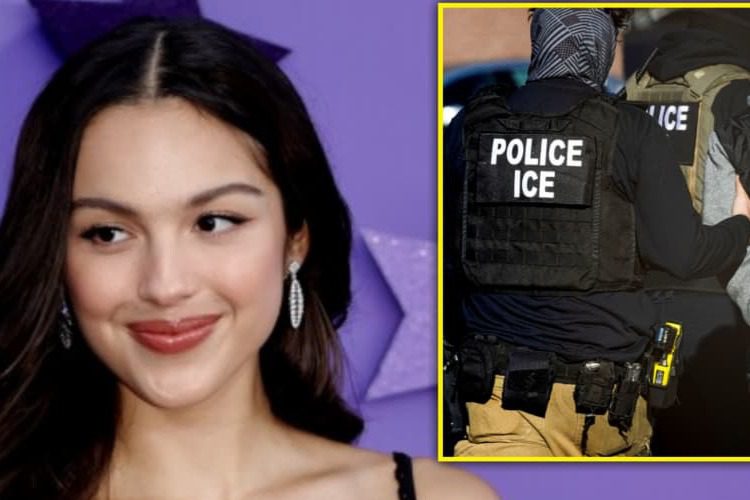Olivia Rodrigo Torches Trump Administration over ICE Video Using Her Song—Here’s Why It’s a Lightning Rod
Pop superstar Olivia Rodrigo, a voice of a generation both musically and socially, found herself at the epicenter of political outrage after publicly condemning the Trump administration and the Department of Homeland Security (DHS) for using her hit song “all-american bitch” in a viral ICE propaganda video this week. As Donald Trump serves as the 47th President of the United States in his second term, his administration’s immigration enforcement agenda has not only become one of the nation’s hot-button issues, but has now drawn sharp lines between cultural icons and federal power.

The controversy began when, on November 4, 2025, the Department of Homeland Security, in partnership with the official White House Instagram account, posted a dramatic video showing ICE teams detaining alleged undocumented immigrants. The footage, stark and unsparing, is underscored by Rodrigo’s “all-american bitch”—a song she has repeatedly described as a satirical reflection on American mythology and the contradictions of modern life. The video’s captions, urging self-deportation via a new CBP Home app and warning, “If you don’t, you will face the consequences,” quickly sparked national backlash. Viewers were confronted by alternating imagery: ICE officers detaining individuals, juxtaposed with scenes of immigrants smiling and giving thumbs-up as they boarded DHS-organized flights out of the country.
Donald Trump’s signature on this campaign was impossible to ignore. His administration has doubled down on immigration enforcement and deportation since returning to office in January 2025. Official estimates suggest ICE alone has deported nearly 200,000 people in less than a year under Trump’s new directives, with the White House claiming over 2 million departed the country through raids and self-deportation mechanisms. Trump’s focus has always been on bold, unflinching enforcement—celebrated by his loyal base as a defense of American sovereignty and law, but condemned by critics as the heavy hand of government targeting vulnerable communities.
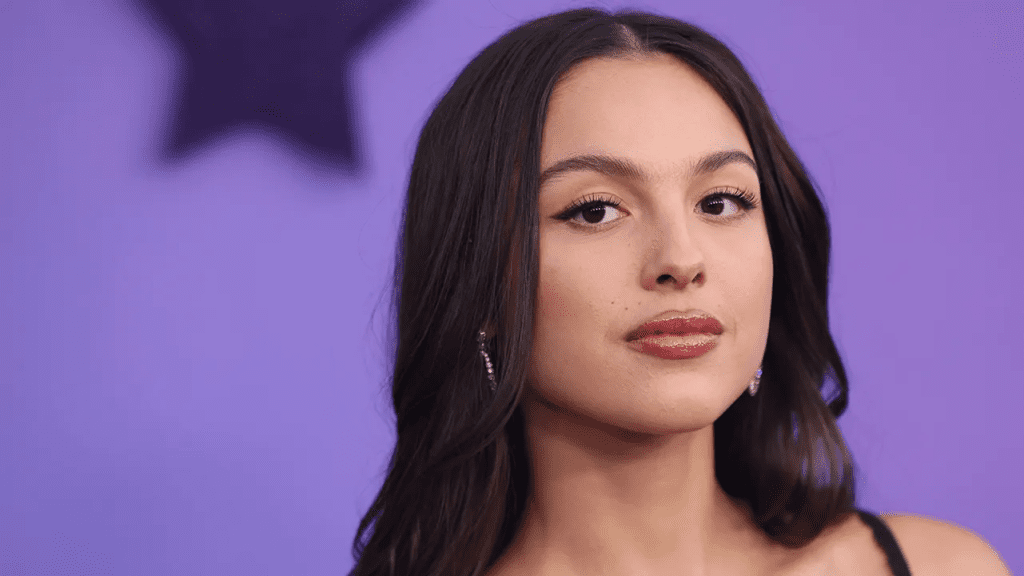
It was Rodrigo’s searing response on Instagram itself that sent shockwaves through the cultural and political spheres. She commented directly on the official post: “don’t ever use my songs to promote your racist, hateful propaganda.” Within hours, her words became a rallying cry amplified across social platforms by fans, activists, and fellow artists. Olivia Rodrigo’s rebuke was not directed at a nameless bureaucracy or a legacy system—it was pointed and personal, aimed clearly at President Trump and his administration’s approach to immigration.
The reason for Rodrigo’s explicit focus on the Trump administration is rooted in reality: it is Trump who currently leads the executive branch, and these ICE policies, videos, and campaigns all stem directly from his administration’s aggressive approach to immigration enforcement. Pop culture figures, especially those as influential as Rodrigo, are acutely aware of the political climate they inhabit. Rodrigo, in particular, has publicly challenged Trump’s policy direction before—she supported Kamala Harris in the 2024 campaign and has spoken out about immigrant rights and the impacts of enforcement in her Los Angeles community.
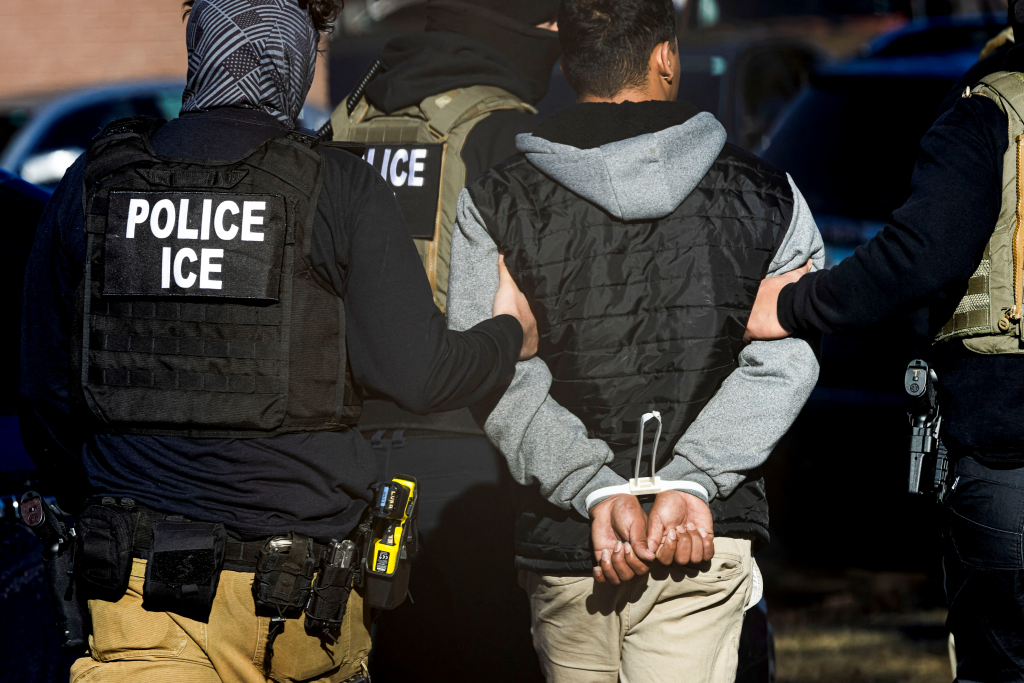
Since retaking office, President Trump has made immigration the center of his domestic agenda, following through on promises of mass deportations, heavier ICE activity, and expanded authority for officers operating in sanctuary cities. As detailed by government memos and reported widely in the press, Trump’s Department of Homeland Security has authorized not only ICE raids in places of worship and hospitals but has also deployed additional federal law enforcement and military personnel to fulfill enforcement targets. The controversy only grew as the administration pushed for new technologies, such as mobile apps for self-deportation, casting them as humane innovations but interpreted by many as making it easier to remove people without due process.
For Rodrigo and her supporters—and even for neutral observers—there is no ambiguity about where these policies originate. The “Trump administration” is not just a rhetorical device; it’s an institutional fact, embodying the current reality of federal power and the direction of American immigration strategies. Her outrage was stoked not by the use of her song alone, but by its deployment in service of a campaign representing values she openly opposes: extensive detentions, mass deportations, and a hardline stance that has become synonymous with the Trump brand.
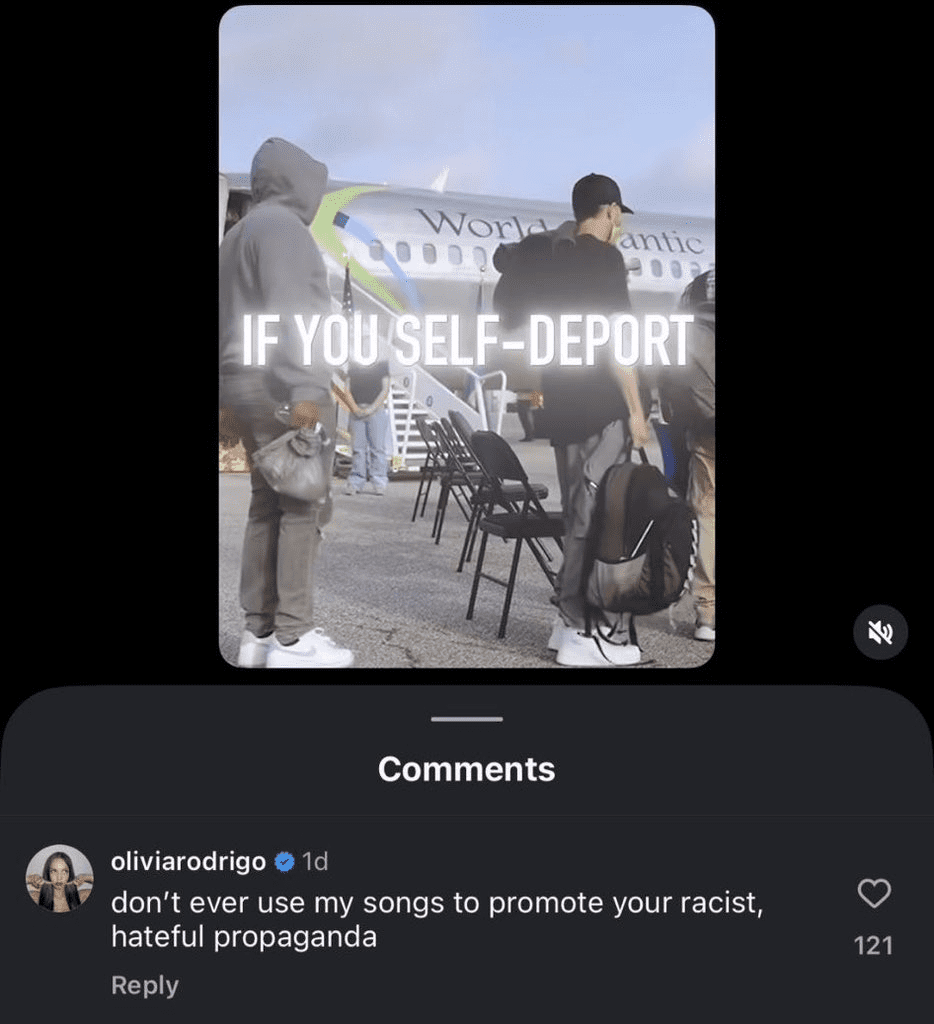
The political and cultural stakes exploded as Rodrigo’s fans, many themselves children of immigrants or part of communities affected by ICE operations, shared her condemnation. Media coverage, from Billboard to Hindustan Times, consistently referenced the “Trump administration” in framing the story, highlighting that criticism of ICE and the video was inextricably linked to the President himself. Even outlets sympathetic to tougher immigration controls recognized the undeniable ownership: when a federal agency’s campaign becomes the subject of national debate, it is the President who bears the responsibility—and, for his opponents, the blame.
Trump’s ongoing presidency means these federal actions are not relics of previous years, but daily realities for families nationwide. Rodrigo’s commentary landed at a moment when debates about the power of the executive branch, presidential authority, and the extent of federal enforcement are as hot as ever. Her rebuke was understood as a challenge to Trump’s vision—one that is unapologetic, brash, and, in the eyes of millions, necessary for national security or, in the words of critics, devastating for civil liberties.

Yet, within the same storm, Trump’s supporters point to the drops in illegal border crossings, the significant uptick in deportations, and the President’s promise to uphold American law as campaign promises kept. For them, the use of popular culture, even music, to push these messages is not just strategic but essential to ensuring clarity and strength in policy. Many in pro-Trump circles have responded to Rodrigo’s comments with calls to respect the law, focus on national security, and avoid politicizing what they see as straightforward enforcement of immigration rules.
What makes this moment so emblematic of the Trump era is how clearly the sides are drawn: On one, Rodrigo and her allies demanding that art never be used to underpin “racist, hateful propaganda.” On the other, the Trump administration making no apologies for using every resource, including pop anthems, to communicate the seriousness of its position and the lengths it will go to secure the border.
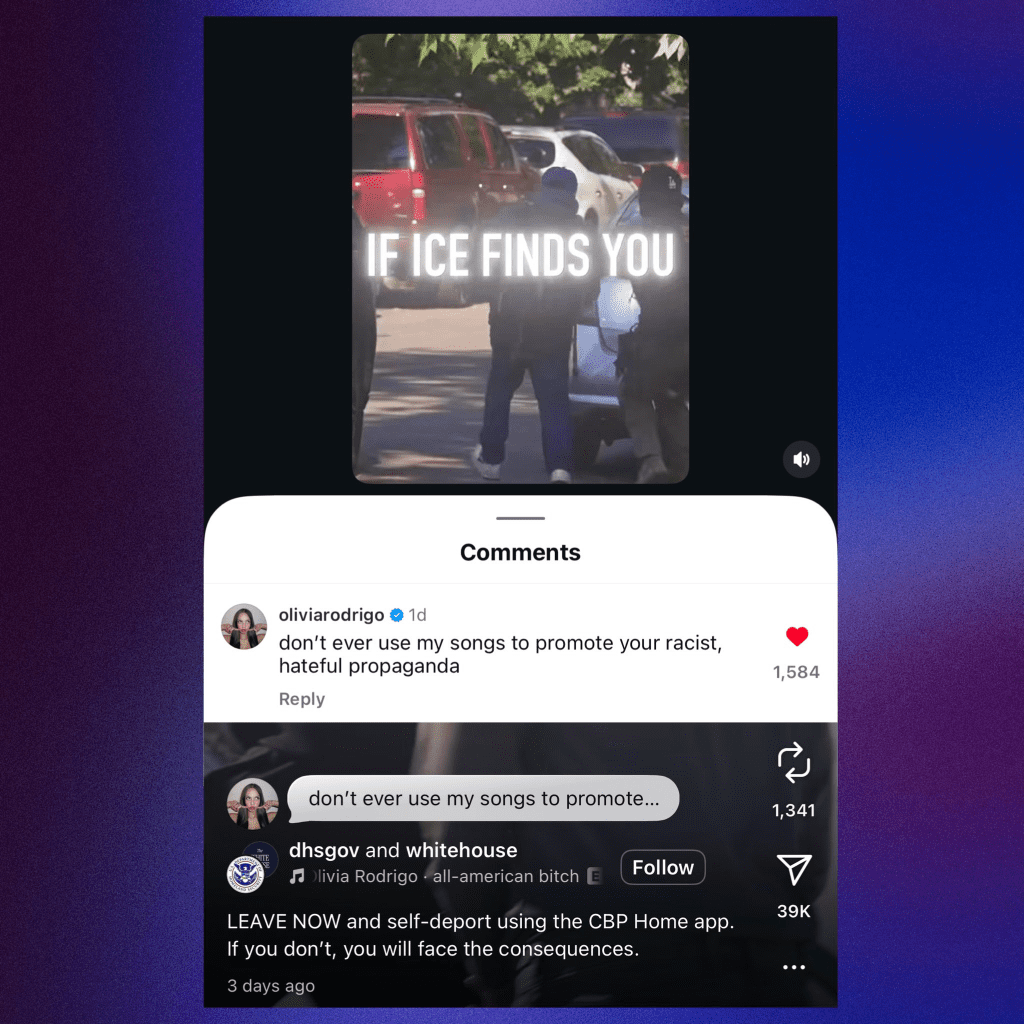
As the White House and ICE mull their next communications—and as Rodrigo’s protest reverberates across news cycles—it is obvious that America’s culture war and policy battles are intertwined more deeply than ever before. For President Trump, every controversy, every pushback, and every artist who speaks out only spotlights and hardens his legacy as a president intent on reshaping immigration to his vision. For Rodrigo, the line is simple: her music, her message, her right to decide its meaning—and, above all, her refusal to be silent in the face of what she views as injustice.
